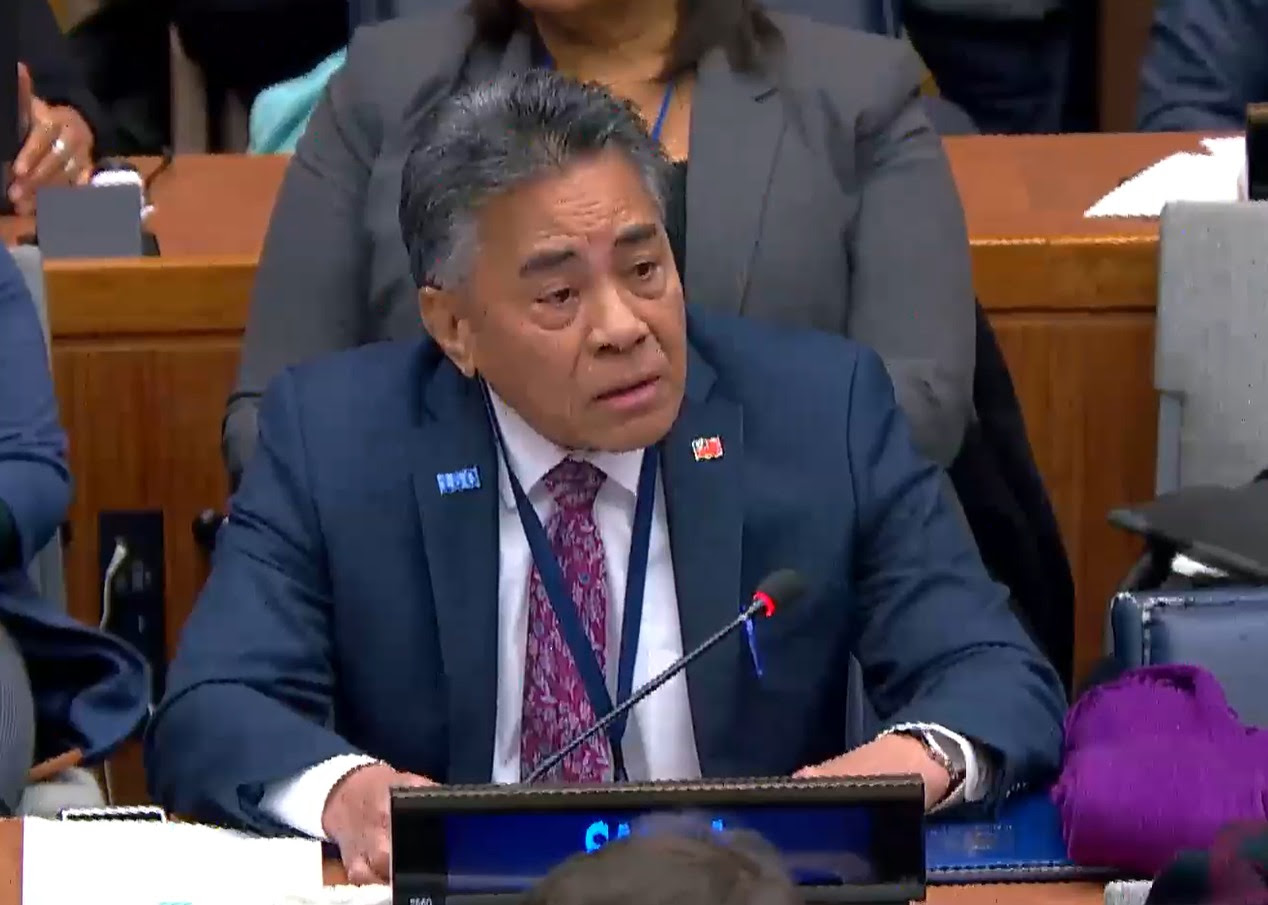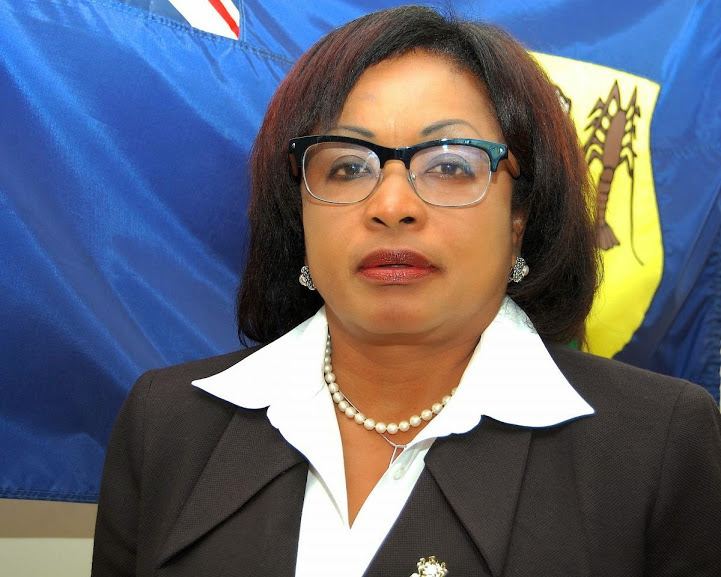KINGSTON, Jamaica, Jan 18 2015, CNS – Indi Mclymont-Lafayette is a multi-award winning journalist and communications specialist with just over 15 years of experience in media and communications. She currently serves as Regional Director for Panos Caribbean. Since joining Panos Caribbean in 2005 she has honed her expertise in communications for development with significant focus on climate change, HIV/AIDS, Child Rights and Gender. A Jamaica government exhibition scholarship recipient, Ms. Lafayette holds a BA in Media and Communications (Hons), an MA in Counselling Psychology.
Prior to Panos she was the coordinator/editor of the Jamaica Observer’s All Woman magazine. She has received nine national and regional awards for her work in those areas, including the Pan American Health Organization’s (PAHO) Merit Award for Excellence in Health Journalism in the Caribbean, the United Nations Population Fund 2003 Caribbean Media Awards – Platinum Award for coverage of Adolescent and Reproductive health issues, PAHO’s CARICOM award for best story on HIV/AIDS (a joint effort with another reporter).
Displaying a range of multi-disciplinary skills, Mrs Lafayette has lectured at the tertiary level – both at the Caribbean Institute for Media and Communications and the Institute for Gender and Development Studies at the University of the West Indies (UWI). She has extensive experience in events and seminar planning and she has also done public relations and radio work. In addition to her journalistic work she has also written and co-edited two publications: – A short story ‘Tommy, the Mocho Maroon’ published in the Jamaican Ministry of Education’s Windows to Literacy textbook for Grade 3 (2008) and the ‘Voices from Mocho’ book published on the environment and climate change by Panos Caribbean (2007). She is happily married to Patrick and has two children, Leila and Djvan.
- What do you love most about the Caribbean? I love the warmth and friendliness of the Caribbean people. After travelling to about 38 countries I realised that that is not something we should take for granted. There are many countries where the people are not as warm and caring and perhaps that is why visitors love to come to the Caribbean because we are welcoming. I love our tropical climate and our vibrant culture. I would love to see more unity in the region and more freedom of movement for skilled professionals.
- What brings you the greatest joy? I love to help people – making a difference in people’s lives is what brings me the greatest joy. So for example, mentoring young people especially at risk youth and helping them to transition from vulnerability to self-reliance is a joyful experience. With Jamaica’s crime problem we can only break the back of crime by helping each other, building stronger families, generating employment where possible and all of us have to play our part. So making my contribution there is also another source of joy for me. Of course the continuing strength to do that comes from my faith in God. The Bible says the joy of the Lord is my strength and I apply that strongly to my life.
- What is the best advice you’ve been given? The best advice I have been given is not to let anyone crush my dreams. But rather to pursue them despite the odds. Really though I am not so much into the giving of advice. In fact I no longer give advice. I listen more. I think that is far more effective in helping people than giving advice. I listen and many times that listening space gives people the chance to work through their problems for themselves and come to solutions that they are comfortable with. So if I were to give advice it would be similar to the title of a book Panos has in its library – Listen for a change.
- What is on your bookshelf? I am a voracious reader so I always have a book at hand. At the moment I am reading ‘The History of Marriages’ by Elizabeth Abbott. I enjoy biographies so I have those for Martin Luther King, Malcolm X, Hilary and Bill Clinton and so on. There are a lot of communication and psychology texts as those are my areas of study. Of course several versions of the Bible…A personal favorite is my husband’s children’s Christmas Book – Mas Joe’s Christmas Adventure.
- What charity do you support? I give to my personal church, Fellowship Tabernacle. I also contribute to the Salvation Army for the Blind, Abilities Foundation and charitable organisations that work with the disabled. I generally support charities that work on disaster relief and a range of other issues in my field. That support can be cash or technical expertise, time etc. Panos is also a charitable organisation which I put a lot of extra hours into.
- What is on your bucket list? I have a long bucket list. One of the immediate things is to do a once a month road trip with my family especially my two children – Leila and Djvan – so that they intimately know all the nooks and crannies of Jamaica. So many times us local people don’t know our islands as well as the tourists who come and enjoy it. I also want to start dancing again eventually – maybe Latin dancing first. I plan to be fluent in Spanish and French so I need to resume classes. Oh dear…I shall be busy till death.
- What is on your perennial to-do list? Spend more time with family and friends – sometimes I put this off too much. Start working on my books. My first ambition was to be an author and I am still working on that.
- Who are your Caribbean heroes? I was very strongly inspired by Angela Cropper from Trinidad and Tobago. I met her several times and I was very impressed by her humility and inner and outer beauty. When I googled her and read about her life story I was moved by how much she had gone through in her life and risen above.Then there are Jamaican women like Linnette Vassell and Judith Wedderburn – who have spent their lives fighting for better quality of life for Caribbean women. Achievements such as Maternity leave for Jamaican women and minimum wages for poor women really move me to look at how I can make a difference in my time as well.Two Caribbean men that I hold in high regard are Barry Chevannes and my own husband, Patrick Lafayette. Professor Chevannes in his own humble manner did a lot to build the contribution of men in parenting in Jamaica as well as other areas of Jamaican life. To me Patrick, as a Visually Impaired Professional, has done a lot for persons with disabilities in Jamaica through his training with assistive technology for these persons. He has also excelled as a blind person in broadcasting in Jamaica and I admire his ability to not be restricted by his lack of sight. There are other persons but space is limited.
- Who is on the guest list for your ideal dinner party? Hmmm – I used to dream of having Nelson Mandela to dinner and just sitting and talking to him. That is no longer possible.
- What quote do you live by? With God all things are possible. I don’t limit myself – I have done many things that people have said could not be done. But one of the life lessons I have learnt is that if I really want something I should go after it and give it my best shot. I don’t listen to nay sayers I would rather try and fail than not try. And more often than not I have tried and succeeded….
- What is one thing people would be surprised to know about you? I have a twisted sense of humour. I am a prankster with persons who are close to me.
- What is one thing you wish you knew when you were younger? I wish I had been taught more life skills as a youngster – how to budget, how to save, how to cope with stress, how to survive when the world gets rough and tumble.
- What would you want to say to the Caribbean about any one of these: Agriculture, Arts & Culture, Climate Change, HIV/AIDS, Tourism? I am very concerned that the Caribbean is not preparing enough for the impacts of climate change. We are getting the policy framework in place but I think Caribbean civil society needs to be more vocal on the international scene so that developed countries can understand the urgency that faces the Caribbean and Small Islands. With greater understanding of Caribbean vulnerability to stronger hurricanes, longer droughts, flash floods and food scarcity it may push them to commit to stronger emission reduction targets and stick to those commitments. I don’t want to see any Caribbean islands sinking due to sea level rise and the people having to migrate elsewhere. That is the prediction for Barbuda in 40 years according to research done by the Germanwatch Climate Risk Index and so we need to wake up and start paying attention to these issues.
14. Any final words? Love God. Live. Love. Make the most of your life. Leave a legacy.



